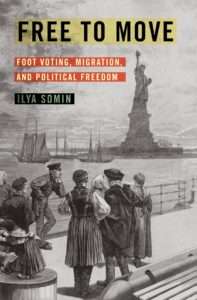Blain: The Biggest Risk For Markets Is, Perversely, “Truth!”
Tyler Durden
Tue, 06/16/2020 – 09:10
Authored by Bill Blain via MorningPorridge.com,
“This is Ripley, last survivor of the Nostromo, signing off.”
Markets are beginning to depress me. I’ve spent 35 years working in capital markets, trading rooms and finance. I once blithely believed free and liberal Financial Markets and the invisible hand had the power to change the world through efficient allocation of capital.
Now? I fear markets have become so distorted they are evolving into something parasitical – feasting on central bank and government largesse as they suck the lifeblood from economies while fuelling rising inequality across the globe. OUCH!
Today I have few expectations markets will play any significant role in solving the Coronavirus crisis. Its governments that are going to drive solutions and recovery, saving us all… not private enterprise and markets. (And that will infuriate any conservative, mainly because they will know it’s true.. I will be bombarded with emails telling me its government conspiracy etc.. )
Whether it is the financially conservative Germans cutting VAT and granting hand-outs to families, the US looking at a massive infrastructure programme, or even the UK finally getting serious about the Brexit negotiations – it’s going to be government actions that determine how quickly the global economy comes out the looming recession.
Already the signs of recovery are promising. There is clearly pent up demand underlying economies – we can see that in the queues at shops y’day, or the swift recovery in the economic data since April. It’s not going to be a V-Shape, but a shorter-tail tick-shape to recovery by 2021/22 feels likely.
Recovery has been fuelled by government action. Markets have just played along and made money from the ructions. Let me explain:
We had yet another 180 degree market sentiment flip yesterday – fears about the rising number of reopening coronavirus hotspots and economic threats were superseded by unbounded joy as the Fed announced it will buy secondary market corporate bonds direct rather than thru ETFs, without any need for companies to certify their eligibility. That pressed the risk on button – and markets recovered.
Tomorrow the market might crash again. It might be someone expressing doubts on the vaccines, or a new virus flare up that triggers a flop-moment that pushes markets down again.
But the biggest risk for markets is perversely “truth”. If Fed Chairman Jay Powell isn’t bullish enough when he speaks later today – then markets will have a hissy fit, furious he isn’t doing more to support them by expanding on their bull outlook. (And Powell will find himself on the receiving end of a Trump twitter-storm telling him how crap he is.)
A few years ago markets famously collapsed on the threat of the taper – the taper tantrum – the threat to remove QE support from the markets. Now markets aren’t in the least scared of taper – they just demand feeding.. they want, and they want more.
However, the Fed corporate bond programme is really interesting and genuinely innovative. The Fed (advised by Blackrock, I should imagine) has set its own list of names based on its own rating criteria and other metrics, which translates as it can buy any company that was investment grade before the crisis… and which remains investment grade in the Fed’s mind. It means the Fed will buy whatever it thinks it might need to buy in order to avoid corporate shocks dragging down the economy.
It means the large US corporates the Fed is backing to drive the economy retain access to unlimited liquidity and remain solvent. Two crisis points addressed for the price of one. Keeping Corporate America cosmetically solvent – despite the dire economic reality – means these firms will continue to be able to raise cash to weather the crisis, keep their factories open, maintaining trickle-down orders to the SME’s that supply them, giving time for the economy to develop new internalised supply chains and preserving jobs. The Bank of England will announce something similar.
Corporate QE Infinity is positive fiscal policy in a monetary guise.
However… what does it mean for markets? That’s when I start to despair.
Every single investment bank and research fund is rightly advising clients to go long bond and credit risk. Rates are going to remain low. Corporate QE infinity means corporate bonds are going to tighten – supported by the fact Central banks are now de-facto guarantors of the corporate bond market. Bonds tighten, yields diminish.. Hungry capital will look elsewhere for returns – which means taking on-board higher risks to avoid declining returns
But yields are so tight, you need to search further for any meaningful returns…
Junk Bonds are also going to tighten in line with the underlying corporate bond market. They aren’t yet directly supported by QE Infinity, but the trend is the friend that pulls them higher. Buyers will be selective, trying to avoid the obvious living-dead names, but their buy-decisions with have nothing to do with sound credit metrics… just the likelihood they will tighten on the back of tightening… (yep.. I wrote that deliberately..).
Who benefits? Jobs are kept open, but the upside rewards will largely go to the private owners of junk companies who successfully retain the equity upside while debt markets fund them.
What about Emerging Market Debt? The picture around the globe looks bleak as supply chains crumble, the virus overwhelms health provision in poorer nations, while the prospects of social unrest mount. None of these factors apparently matter. Analysts predict the default rate in EM will be lower than feared because these economies will indirectly benefit from the improving outlook for the key developed nations. Defaults might be falling – but I suspect the IMF will be very busy negotiating debt extensions that will tie EM nations into penury for longer.
As a result, EM spreads will tighten… and force investors to continue to seek enhanced returns… which means all that money ends up in the already overheated and frankly daft equity markets…
What has all this QE Infinity and ZIRP interest rates created? A global market economy where every flea has its own fleas…Where emerging market nations dreams of social improvement are forgotten while they remain beholden to the West (and China) for any chance of growth? Where market prices have become meaningless as a result of financial asset inflation? Where junk bonds are priced like AAA securities, allowing private equity funds to thrive?
I am beginning to wonder if there is any point in thinking about markets any more… Just follow the central banks… don’t think.. Just buy.
The long-term consequences of rising inequality across every metric will likely be glossed over. Which shows just how wrong we can be. While the developed world is convulsed about Black Lives Matter, we seem to be happy creating bailouts that will ensure the rich get richer and poorer nations will be penalised for longer.
Should we remain in thrall to markets? We have little choice at the moment. But long term we have to get markets back on track – and that means cold-turkey as we wean ourselves off the dangerous QE Infinity distortions.
Meanwhile…
Clearly the past 4 months has been pretty traumatic. Bridgewater is in the press this morning for taking a 15% seal-clubbing as a result of founder Ray Dalio being fully invested when the No-See-Em hit. Embarrassing, but not really a problem. Real money invested long-term has to lead the flow – and will get hit by unforeseen events. Any investment manager that says they were prepared for the coronavirus was more likely underinvested, and got lucky.
My own solution is steer clear of distorted financial assets when you can. Look to invest directly into the economy – infrastructure, growth, green and energy. Seek investments with clear business upside potential, rather than just a boost from QE distortions. Someday it will end.
via ZeroHedge News https://ift.tt/2USoJK2 Tyler Durden

